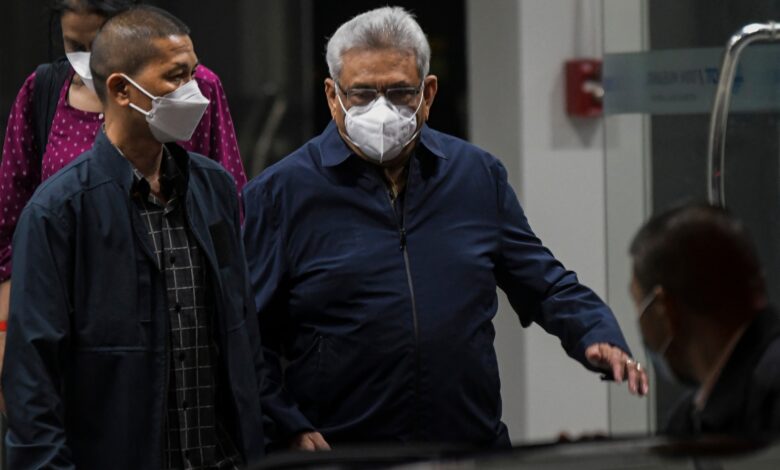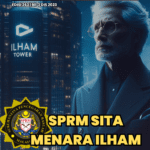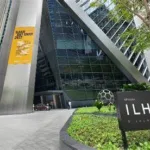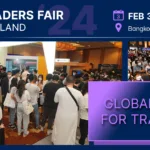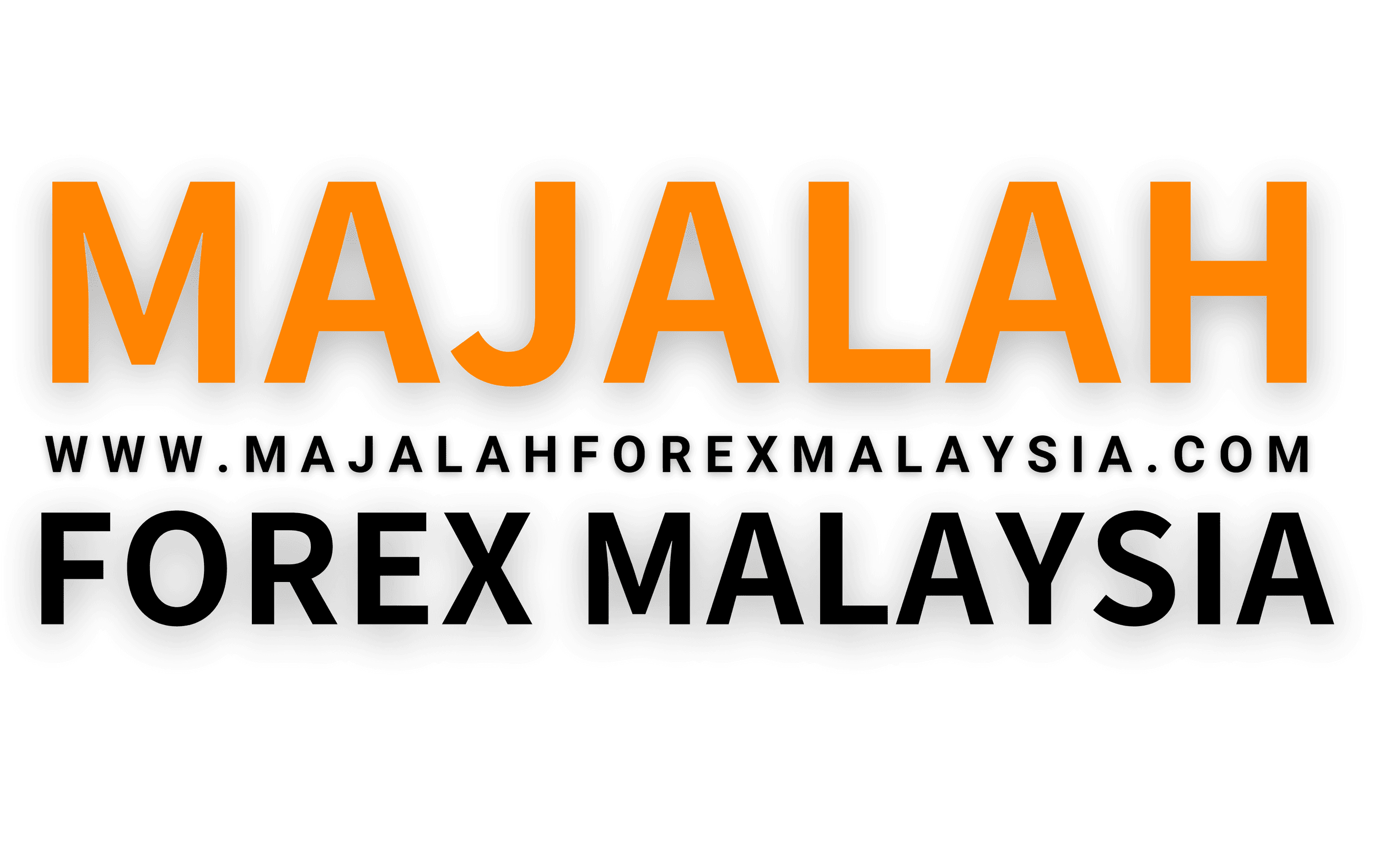The former Sri Lankan president Gotabaya Rajapaksa, who fled overseas to escape protests against his government, arrived in Thailand on Thursday night on a flight from Singapore, where he had been staying since mid-July.
Thai television stations showed Rajapaksa and a woman believed to be his wife outside the VIP hall at Bangkok’s Don Mueang airport being led to a limousine, which drove off to an undisclosed destination.
Officials in Thailand on Wednesday said they had been asked by the Sri Lankan government to allow him entry, and that he would be permitted to stay temporarily.
The Thai prime minister, Prayuth Chan-ocha, said he was aware of Rajapaksa’s intended visit and that it was allowed for humanitarian reasons because the former president was seeking asylum in a third country. He did not elaborate but said Rajapaksa would not engage in political activity while in Thailand.
Rajapaksa has made no public comments about his travel plans. After fleeing Sri Lanka in July, he went to neighbouring Maldives in a Sri Lankan military plane and then on to Singapore, where his visa expired on Thursday. He submitted his resignation from the presidency only after he left Sri Lanka.
A Thai foreign ministry spokesperson, Tanee Sangrat, said Rajapaksa’s “stay is temporary in nature with the aim of onward travel. No political asylum has been sought.” He said that because the former president held a diplomatic passport, he would be allowed to stay for 90 days without a visa.
Sri Lankans have staged large street protests for months demanding democratic reforms and solutions to the country’s economic collapse.
Protesters who had occupied official offices and residences in Sri Lanka’s capital, Colombo, blame mismanagement and corruption by the Rajapaksa family for the economic crisis that has led to serious shortages of essentials such as medicines, food and fuel. Sri Lanka is negotiating with the International Monetary Fund for a bailout programme.
In addition to being criticised for mismanaging Sri Lanka’s economy, Rajapaksa has been accused by human rights groups of involvement with war crimes when he was defence secretary during Sri Lanka’s civil war, which ended in 2009.
With Associated Press

